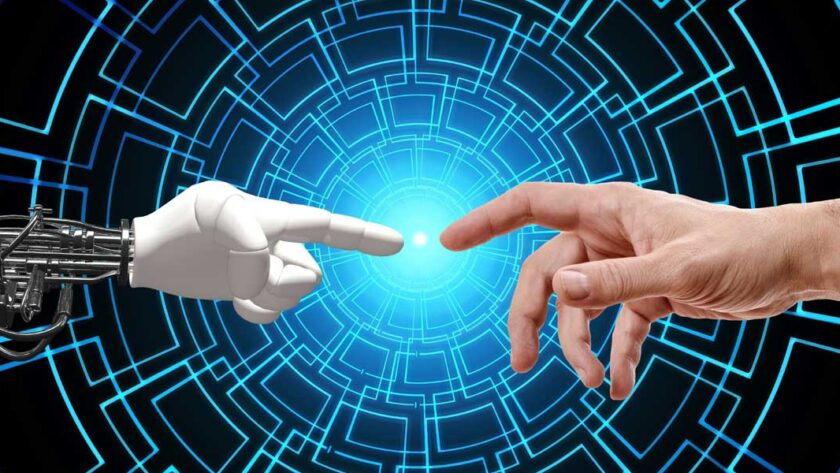Artificial intelligence (AI) has emerged as a transformative force, revolutionizing industries and reshaping the way we live and work. In the modern era, the integration of AI technologies has opened up new possibilities for businesses, driving efficiency, innovation, and improved decision-making. In this comprehensive blog post, we will delve into the concept of artificial intelligence, exploring its modern approach and its profound impact on various sectors. Join us as we unravel the power of AI and its potential to shape the future.
Understanding Artificial Intelligence: A Modern Perspective
Defining Artificial Intelligence
Artificial Intelligence, often abbreviated as AI, refers to the development of intelligent machines capable of performing tasks that typically require human intelligence. The modern approach to AI focuses on the creation of systems that can learn from data, adapt to new information, and make autonomous decisions, driving advancements in areas such as machine learning, natural language processing, and computer vision.
The Evolution of AI: From Early Concepts to Modern Approach
To understand the modern approach to artificial intelligence, it’s important to recognize its evolution over time. Early concepts of AI emerged in the 1950s, and since then, AI has evolved significantly. The modern approach to AI emphasizes data-driven algorithms, neural networks, deep learning models, and the ability to process and analyze massive amounts of information to extract meaningful insights.
Key Components of the Modern AI Approach
Machine Learning: Powering Intelligent Systems
Machine learning is a fundamental component of the modern AI approach. It enables machines to learn from data, identify patterns, and make predictions or decisions without explicit programming. Supervised learning, unsupervised learning, and reinforcement learning are key techniques within machine learning, empowering systems to acquire knowledge and improve performance over time.
Neural Networks: Emulating Human Brain
Neural networks are a crucial aspect of the modern AI approach. Inspired by the human brain’s structure, neural networks consist of interconnected artificial neurons that process and transmit information. Through deep learning, complex neural networks can learn hierarchical representations of data, leading to breakthroughs in image recognition, natural language processing, and more.
Natural Language Processing: Human-Computer Interaction
Natural Language Processing (NLP) is a subset of AI that focuses on enabling computers to understand, interpret, and generate human language. By applying algorithms to textual and spoken data, NLP enables machines to comprehend and respond to human commands, facilitating seamless human-computer interaction and powering applications like virtual assistants, chatbots, and language translation.
Applications of Artificial Intelligence: Transforming Industries
AI in Healthcare: Enhancing Diagnostics and Treatment
The modern approach to AI has revolutionized the healthcare industry, enabling more accurate diagnostics and personalized treatment. AI-powered systems can analyze medical images, detect anomalies, and assist doctors in diagnosing diseases such as cancer. Furthermore, AI algorithms can process patient data to identify patterns, predict potential health risks, and optimize treatment plans.
AI in Finance: Driving Intelligent Decision-Making
The modern AI approach has significantly impacted the finance industry, empowering organizations to make data-driven decisions and enhance risk management. AI algorithms can analyze vast financial datasets, detect fraudulent activities, and provide valuable insights for investment strategies. Additionally, chatbots powered by AI are transforming customer service in the financial sector, providing personalized assistance and improving customer experiences.
AI in Manufacturing: Automation and Optimization
Artificial intelligence is revolutionizing the manufacturing sector by enabling automation, optimization, and predictive maintenance. AI-powered systems can monitor production lines, identify anomalies, and optimize workflows for increased efficiency. Machine learning algorithms can analyze historical data to predict equipment failures, reducing downtime and improving overall productivity.
The Future of Artificial Intelligence: Challenges and Opportunities
Ethical Considerations and Responsible AI Deployment
As AI continues to evolve, it is crucial to address ethical considerations associated with privacy, bias, and job displacement. A modern approach to artificial intelligence necessitates responsible development and deployment, ensuring transparency, fairness, and accountability in AI systems.
Collaborative Potential of AI and Human Intelligence
The future of AI lies in the collaboration between machines and humans. By leveraging the strengths of both, AI can augment human capabilities, leading to innovative solutions and transformative advancements across industries. This collaborative approach opens up possibilities for interdisciplinary research and the development of AI systems that align with human values and societal needs.
Conclusion
Artificial intelligence, with its modern approach, has emerged as a powerful catalyst for change across industries. From healthcare to finance, manufacturing to customer service, AI is transforming how we work, interact, and innovate. As we navigate the exciting possibilities that AI presents, it is crucial to prioritize responsible development, ensuring that AI technologies are deployed ethically, transparently, and with a focus on human well-being. Embrace the modern approach to artificial intelligence and unlock the immense potential it holds for shaping our future.
Reference: http://aima.cs.berkeley.edu/



